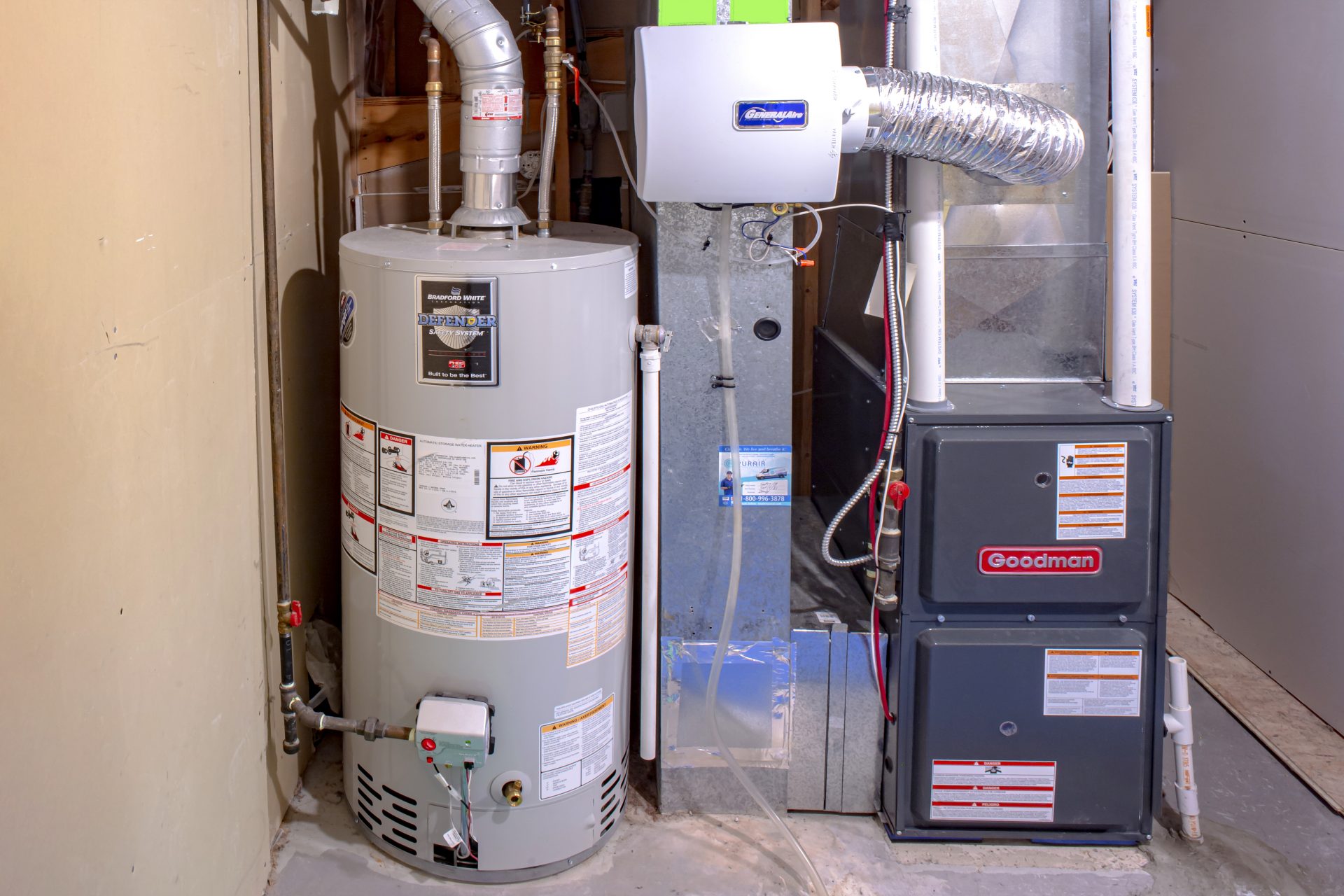
Pros and Cons to Various Hot Water Heaters
When going back and forth about water heaters, there are many different aspects to consider. Between different types and brands, it can all be pretty confusing! So many options of what might work best for you and your home, what might not, and every detail in between. That’s why we’re going to make it simple. We’re going to outline the different types, go over pros and cons of the water heaters and give you a comprehensive look into what your options are.
Storage Tank
Storage Tank water heaters produce hot water from the top of the storage tank when you turn on the hot water tap. The cold water flows into the bottom of the tank, refilling automatically. Because the tank holds a steady supply of hot water, as they sit, they lose heat. They come both pressurized and non-pressurized.
PROS:
One of the major pros of installing a water storage tank is that the installation costs are relatively lower than other options. This is one of the reasons that they are one of the more popular options for water heaters. They are also very easy to install. This style of water heater also has no pumps or fans; they can get worn out overtime, so they last a lot longer than water tanks and heaters with a lot of moving parts. You will get a lot more wear out of this water heater.
CONS:
One of the main issues with this kind of water heater is that they are highly inefficient by energy standards. Storage water heaters have heat loss problems, which means they are actively wasting energy even when no taps are running. Most of the water heaters in this style have thick insulation to try to fix this problem, so even though it can be a cheap installation operation and maintenance can make up for that cost.
Tankless
Tankless heaters heat water directly without using a storage tank. When a tap is turned on, cold water moves through a pipe into the equipment. Either an electric or gas element heats up the water and delivers hot water in a constant supply. These kinds of tanks are getting increasingly popular in residential home installations.
PROS:
Of course, the major plus side of this kind of water heater is that you get instant hot water that never runs out. They are also great at saving space considering they don’t require the bulkiness of the storage tank. On top of that they are also one of the best ways to make your home energy efficient. This is a great option if you have a lot of people in your home using hot water at once, if you’re concerned about energy efficiency, and are overall wanting your heater to last a very long time. These heaters all have a longer lifespan and will likely save you money in the long run.
CONS:
The downside of this style of water heater is that they can run inconsistent temperatures. Usually this is just when multiple people are using the hot water at once, the issue is mostly the heater’s inability to send enough hot water to multiple places at once. While these heaters will save you money in the long run, they do have a higher initial cost for purchasing an installation. Another piece of this price is the installation because tankless water heaters usually require you to reroute your gas lines because it is a non-conventional way of heating your water. Also, while these water heaters have a big water supply, it is not unlimited. They do heat a certain amount of water at a time, and this can affect usage.
Heat Pump
Heat pump water heaters are different from other water heaters because they pull heat from the surrounding air. This is then pumped to the water in the unit’s tank. This type of water heater might not work well in colder areas or installed in basements because it depends on tepid air around it to work properly. They require at least 1000 cubic feet of air space around the water heater and a condensation drain so, unfortunately, this can make them an issue for smaller houses.
PROS:
Heat pump water heaters are very energy efficient. Rather than generating heat themselves, they draw existing heat from the air – even wasted air from nearby heat sources such as furnaces. Comparatively, heat pump water heaters can save almost $300 annually on electric bills. And if you take care of them properly and get the maintenance regularly, heat pump water heaters can last from 10 to 15 years. This style of heater also allows you to avoid solving problems yourself, such as relighting the pilot light on a water heater. They are also helpful if you’re worried about toxic emissions, and the unit itself won’t be hot and hazardous to pets or little kids.
CONS:
Predictably, heat pump water heaters are pretty expensive. The cost might actually be up to twice as much as more traditional models. Annually, of course they will be cheaper, but the upfront costs of purchasing the heat pump and installation will be significantly higher. Additionally, these pumps can be fantastic in the summer months, but less efficient and run out of hot water quicker in the colder months. If you’re a larger family and everyone wants to use hot water at the same time, this is something you’re going to have to consider.
Solar Heater
Solar water heaters are exactly what they sound like. They don’t have a gas or electric function; they have a solar powered heat source. This is a great way to be energy efficient and take advantage of free solar energy.
PROS:
A major pro of a solar system is saving exponentially on your water heating bill. No matter how you currently heat your water, you will save money on the solar system. They also require little to no maintenance. You don’t have to worry too much about getting them checked other than replacing the circulated antifreeze fluid and just general inspection every few years for safety, but otherwise maintenance requirements are very minimal. Additionally, a maintained solar water heater can last for more than 20 years. They are, of course, very environmentally friendly and energy efficient. If you’re looking to make a minimal impact on the environment, this might be the way to go.
CONS:
The biggest con of a solar water heater is the upfront installation. A solar system might cost around $9000. The performance can also be largely dependent on the climate of where you live. You don’t have to have sun every day to have hot water, but you will save more on your heating bills if you live in a relatively sunny area because you won’t have to use backup heating.
If you’re considering a new hot water heating system, contact our experts at CanWest Mechanical! We will help you determine the best option for you and your family.



No Comments